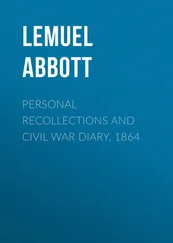Women, meanwhile, got their first chance to break into male trades, whether they were the tartan-uniformed bus conductors on the Glasgow trams, or women police officers patrolling parks in search of vice, or female munitions workers. This clearly affects Thomas, as it did most traditionally minded men, though he rarely voices derision and seems to accept that the world is changing fast around him. His wife is often sick, as is his son, and he clearly has few domestic skills, but it is a small, tight, traditional family in which he does his best. Glasgow was notorious for its drunkenness and domestic violence, and indeed across Britain battered women rarely complained to the police about drunken husbands: when they did, they got little sympathy. By those admittedly low standards, Thomas seems to have been a good husband. His wife Agnes’ ill health was again typical. Ill health and medicines, mostly ineffective still, feature heavily in these diaries. Mortality rates, particularly in urban Scotland, were shocking. The ravages of so-called Spanish Flu, which took a huge toll of the world just after the war, are well known; but it was a time still when less exotic infections, from measles to whooping cough, killed many. Agnes struggles with mysterious internal pains, lumbago and toothache so excruciating that she talks of killing herself. That was life – sorer, rougher and more dangerous by a country mile than it is today. Thomas notes her troubles and does the heavy lifting, and the cleaning, and does not complain. He is hardly romantic or gushing in his descriptions of Agnes but that is not his style. It is eloquent that his diary suddenly ceased when she died. These were two undemonstrative people who needed and loved one another very much.
So here is a slice of Britain from below, during some of her darkest years, and seen through the prism of the empire’s Second City, and the pen of one of the countless millions who mostly went unrecorded, unsung and unremembered. The message is an individual, human one, the more moving and memorable because it does not fit neatly into a historian’s grand narrative. Here, amid the malfunctioning chimneys, boat excursions, bad food and worse news, the little domestic feuds and distant echoes of hectoring from politicians, is the story of one undistinguished, shrugging, perky, rather loveable man who just wanted to get on with his life, be kind to those around him and – if pushed – ‘do his bit for the Flag’ but please, not something too dangerous and please, not quite yet. Here clear and unmistakable is the voice of that fabled abstraction, the man on the street – not the man on the Clapham Omnibus, as it happens, but the mannie on the Kelvingrove Tram. He isn’t easily taken in. He is only a little sorry for himself. He is not noticeably religious or political. He stands aside from the great enthusiasms and lunacies around him; in his sensible, defiant ordinariness, he is almost Charlie Chaplin-esque. He is the man the rest of them are fighting for. And, luckily perhaps, I for one closed his diary realising that I liked him rather a lot.
Andrew Marr, June 2008
Конец ознакомительного фрагмента.
Текст предоставлен ООО «ЛитРес».
Прочитайте эту книгу целиком, купив полную легальную версию на ЛитРес.
Безопасно оплатить книгу можно банковской картой Visa, MasterCard, Maestro, со счета мобильного телефона, с платежного терминала, в салоне МТС или Связной, через PayPal, WebMoney, Яндекс.Деньги, QIWI Кошелек, бонусными картами или другим удобным Вам способом.












